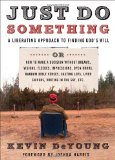I’ve been working on a book proposal, and as it takes shape I find myself in an unexpected quandary. It’s a good book (in my completely unbiased opinion;-)) on a popular topic, and it’s built on many years of practical experience. Although I have a publisher who specifically requested this proposal, I’m hesitating over the question of whether or not I want to go through traditional publishing channels or self-publish.*
You see, I’ve done both, and I know how to self-publish properly– doing everything that a regular publisher would do, including using my company’s own ISBN and hiring experienced specialists for editing, copyediting, indexing, cover design, proofreading and all the other details. I have access to a high-quality pool of experts in NAIWE, the National Association of Independent Writers and Editors, and I’m not worried about the mechanics of the process. Because I have a reasonably well-established online presence and a solid platform as a writer, speaker, coach, and director of NAIWE, I’m not worried about the marketing.
The reason I’m wavering is twofold: First, I know the vast difference in profit margin between the two methods, and second, I highly value the speed, flexibility, and control of the self-publishing process. For a non-fiction book that is carefully targeted to a specific audience, a competent self-publisher with a high-quality book can easily reap a profit of at least 50% of the sale price per book, and often quite a bit more. If the same book were traditionally published, the author would be extremely lucky to receive royalties of 10% of the wholesale price.
With traditional publishing, authors also lose flexibility. There’s no way to easily update information or release a new edition; the publisher usually keeps the rights to publish the book in alternative formats; and authors must purchase books at the wholesale price rather than cost if they want copies for marketing. Worst of all, if the publisher lets the book go out of print, all ongoing potential income is lost unless the author regains the rights (which is something I’d be sure to specify in any contract I signed). The traditional publishing process can take well over a year, while the length of time between manuscript and book-in-hand for a self-publisher–even one who outsources many steps– is usually a matter of a few months at most.
So if self-publishing is more profitable, faster, and more flexible, why is there even a question of going the traditional route? First, there’s the lure of handing it over and having an editor take charge and direct the editing and publication process. Like most writers, I’m busy. I always have other writing projects going, plus work with the association, so sharing responsibility with someone else is alluring. I know that authors still end up doing a lot of work, but it’s reassuring to have an expert at the helm.
Second, traditional publishing has more street cred. People still regard it as the holy grail for writers, and I respect that. Self-publishers, even those whose books match traditionally-published books in quality, are treated like pre-transformation Cinderellas. There’s a certain cachet in being one of the chosen, but from a practical standpoint it’s the equivalent of marrying for social position. Very few people argue for marriages of status anymore, and publishing for status may be destined to become equally archaic. Right now, though, traditional publishing still holds many of the credibility cards, and depending on what the author wants to accomplish with the book, that added credibility can be important.
What to do? I’ll decide in the next few days. I still believe in traditional publishing for fiction, but for non-fiction, it’s a quandary: money and control vs. time and credibility in the traditional publishing world. Hmmmm…
*The term “self-publishing” is being co-opted by some vanity presses, which are using incorrectly using it to describe what they offer. An author who pays a fee to have his or her book “published” under the ISBN of a “publishing company,” is simply paying to have the book printed by a vanity press. This is not self-publishing, and to call it self-publishing is misleading and inaccurate.
